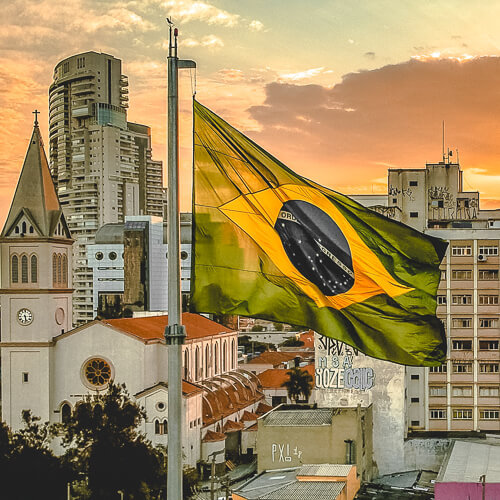
Brazil's long-awaited 5G auction seems to have got off to a flier.
According to various press reports – Light Reading tried in vain to access the latest bidding info from Anatel's website – seven companies pledged a total of 7.09 billion Brazil reais (US$1.27 billion) on Thursday when license concessions in the 700MHz, 2.3GHz 3.5GHz frequency bands went under the hammer yesterday. Bidding for 26GHz spectrum is due to start today.
Among points of note from the first day of bidding is that Claro, which is part of Mexico's América Móvil owned by billionaire tycoon Carlos Slim, emerged as the biggest spender. With a total outlay of BRL1.63 billion ($291 million) it secured various batches of spectrum in the 2.3GHz and 3.5GHz frequency bands.
Figure 1:  Need for speed: Brazil's mobile phone users got a step closer to 5G as the long awaited auction finally kicked off.
Need for speed: Brazil's mobile phone users got a step closer to 5G as the long awaited auction finally kicked off.
(Source: Unsplash)
Telefónica Brasil, a.k.a Vivo, shelled out around BRL967 million ($173 million), scooping up some 3.5GHz spectrum in the process. Telecom Italia's Brazilian unit TIM reportedly coughed up BRL976 million ($175 million) on various spectrum batches, including 3.5GHz airwaves.
Other winning bidders in the mix are Winity II, owned by Brazilian asset manager Patria Investimentos, and ISP Brisanet Participacoes. Both made deep-pocketed investments.
Winity II bagged a batch of 700MHz spectrum with a BRL1.4 billion ($250 million) bid, while recently-listed Brisanet Participacoes secured a 3.5GHz regional coverage license for BRL1.25 billion ($223 million), making it the second-biggest spender yesterday behind América Móvil.
Need to get a move on
According to Anatel, winning auction bidders must start offering commercial 5G services in major cities and the "federal district" before July 31 next year.
Want to know more about 5G? Check out our dedicated 5G content channel here on Light Reading.
Márcio Kanamaru, head of technology, media and telecommunications at KPMG, who was recently chatting to BNamericas, thought the deadline was too tight and that operators will struggle to meet it.
The Brazilian government, as reported by Reuters, thinks operators will need to invest about BRL 40 billion ($7.15 billion) in 5G networks. This may have been lower if Huawei was not effectively barred from supplying 5G equipment.
Related posts:
— Ken Wieland, contributing editor, special to Light Reading
About the Author(s)
You May Also Like












